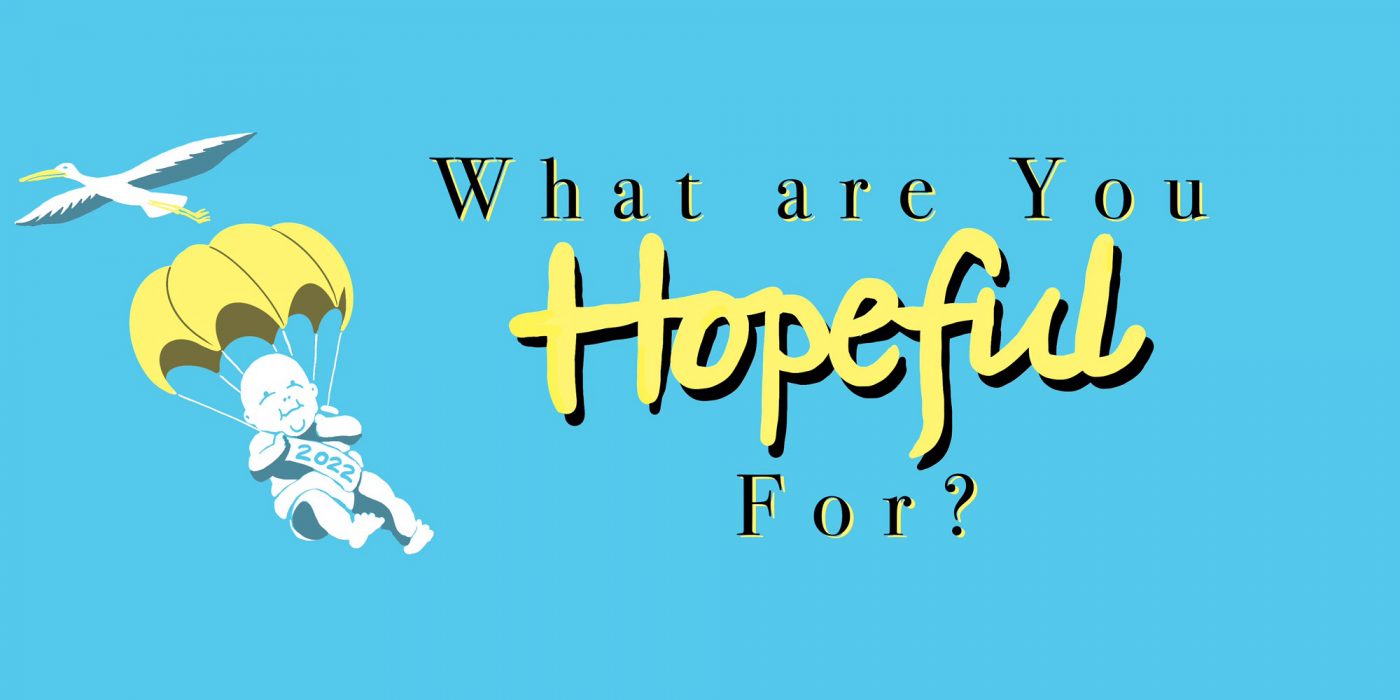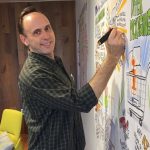We’ve been through a lot together the past few years. A lot. A few weeks ago, experts and teachers told us what they are grateful for. As the leaders and frontline workers of our field collect themselves for the twists and turns to come, we asked for their responses to the question, What in the early learning world gives you hope for 2022. Here are their responses.
“Child care and early learning have become a critical part of our national conversations about how we support children and families. We’re hopeful that attention, celebration and investment will follow.”
—Gregg Behr, executive director of The Grable Foundation and co-author of When You Wonder, You’re Learning: Mister Rogers’ Enduring Lessons for Raising Creative, Curious, Caring Kids (read our review)
“My hope for 2022 lies in the fact that we’ve survived (as a field) and will continue to survive. We will find a way to thrive for our little ones. We have produced many advocates for the field in the past year, and I know our voice is stronger. Personally, I am excited for some of the items on the Build Back Better agenda. Fingers crossed!”
—Nicole Lazarte, teacher, ACCA Child Development Center, Annandale, Va. (read “#WeAretheBackbone Campaign Gives Voice to Child Care Workers”)
“I am hopeful for continued, increased financial investment in early childhood education that will translate into increased wages for this undervalued and under-resourced workforce.”
—Dr. Ola J. Friday, Director, Early Educator Investment Collaborative (read “Eliminating Structural Inequities in Workforce Preparation”)
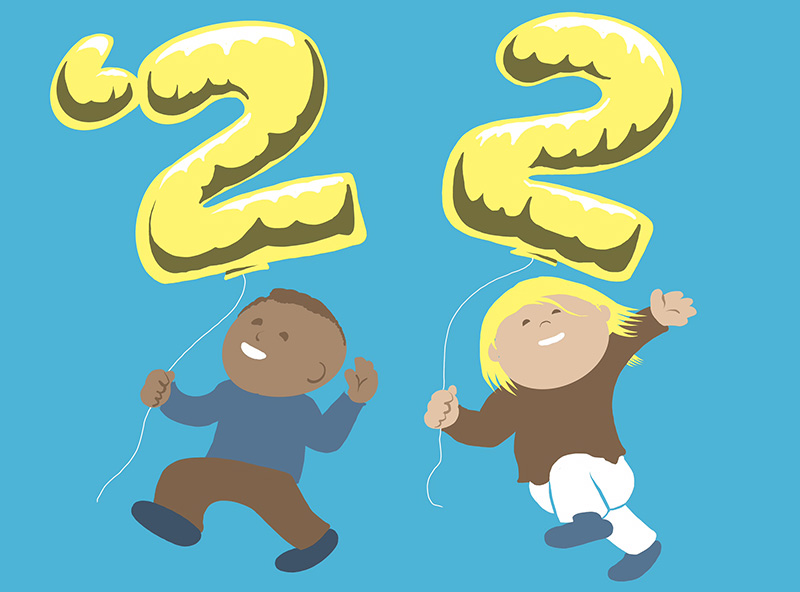 Although the complexity and fragility of the child care (non) system has been known, written about and debated about for decades, 2021 was the first time that these issues reached a national stage with the inclusion of child care, pre-k, child tax credits and paid leave in the Build Back Better proposals.
Although the complexity and fragility of the child care (non) system has been known, written about and debated about for decades, 2021 was the first time that these issues reached a national stage with the inclusion of child care, pre-k, child tax credits and paid leave in the Build Back Better proposals.
The understanding that the economy cannot solve issues of child poverty or the issues of low wages, staff turnover, lack of child care affordability, child care desserts and the need for positive brain-building experiences for young children is indeed a milestone. That gives me hope for 2022.
What would give me more hope is the dream that these issues weren’t political footballs and that we become a country that really values and respects parenting and young children, not just with changed systems but with the changed attitudes that each of us is responsible for all children.
—Ellen Galinsky, Author, Mind in the Making: The Seven Essential Life Skills Every Child Needs; Chief Science Officer, Bezos Family Foundation (read “Communicating – Helping Children Learn to Communicate: Lessons from Anne Fernald.”)
“I have great hope for the year 2040. Eighteen years from now, we will have young adults whose lives have changed because we took a stand now and into 2022. Imaging these impacts gives me great hope for 2022.”
—Antwanye Ford, President & Chief Executive Officer of Enlightened, Inc. (read “Families Are in Crisis. Business, Government and Philanthropy All Need to Step Up”)
“I initiated a regional strategy on child care and hired a Child Care Project Manager for the City of Sacramento who will work on comprehensive efforts to increase access to affordable and quality child care, as well as increase support for our child care work force. I am looking forward to all that will come from this new role in the coming year.”
—Sacramento councilmember Eric Guerra (read “Boosting California’s Early Childhood Capacity”)
“My hope for 2022 is that the early learning system will finally receive the financial, organizational and staffing supports that have been consistently lacking. It is time to transform the patchwork system and individual ‘rose gardens’ into a national, enduring system to meet the growing needs of young children and families.”
—Michael H. Levine, Ph.D., senior vice president of Learning and Impact for Noggin (read “Lessons from the History of Educational Television, the Original Distance Learning”)
“The fact that children have been more resilient through this pandemic gives me hope for 2022. The children we serve showed us that no matter what’s thrown at them, it all about adapting, making the new thing normal and moving forward. I hope that the professionals in the field really capture how well kids made the shift and use that same adaptable energy to have children ready to enter kindergarten with better reasoning, comprehension and healthy social-emotional skills.”
—Dennis R. DeLoach, ECE Program Manager, Northern Virginia Family Service (read “When Head Start Parents Become Head Start Teachers” )
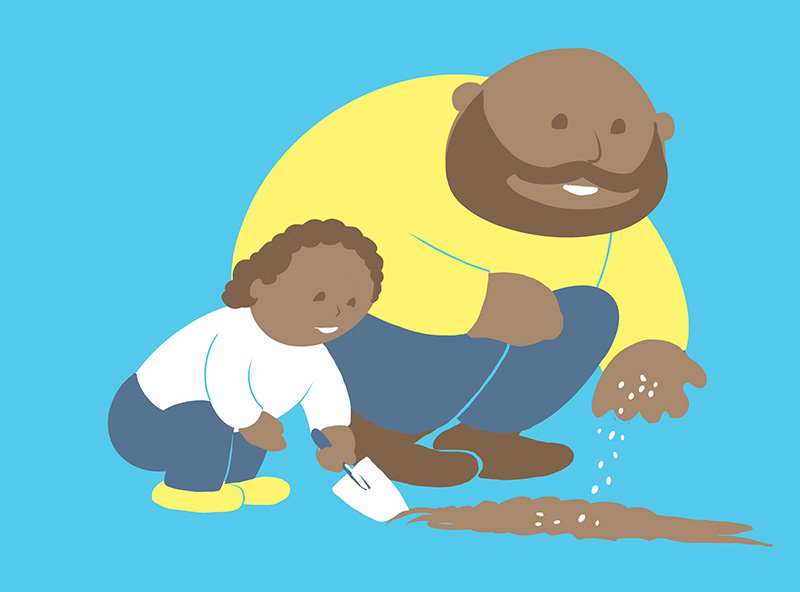 “The Y is thrilled that the Universal Pre-K proposal in Build Back Better supports a mixed delivery system. It takes all types of providers, settings and programs to meet demand. BBB requires that states support a mixed-delivery system, including equitable distribution of preschool slots among settings—Head Start, schools, child care centers and family child care.”
“The Y is thrilled that the Universal Pre-K proposal in Build Back Better supports a mixed delivery system. It takes all types of providers, settings and programs to meet demand. BBB requires that states support a mixed-delivery system, including equitable distribution of preschool slots among settings—Head Start, schools, child care centers and family child care.”
—Heidi Brasher, senior director of Product Line Cohorts, Strategy and Innovation Movement Services of YMCA of the USA (read “How Three YMCAs Are Helping Their Communities Build Stronger Systems For All”)
“Throughout the past year and half, and in 2022, the thing that gives me hope is the determination and leadership of home-based child care providers to support families and each other. Our children, families, communities and society at large benefit enormously from the love and commitment of these home-based caregivers.”
—Natalie Renew, Director, Home Grown (read “Home Grown Launches ‘Leading From Home’ Initiative to Support Provider Leaders Nationwide“)
“In 2022 we have the potential to act on transforming and re-imagining early care and education as one that is equitable, just, culturally responsive and supports the holistic development of all children!”
—Dr. Tonia Durden, Clinical Associate Professor, Georgia State University (read “Eliminating Structural Inequities in Workforce Preparation”)
“We hope that in the New Year, early educators’ working conditions and supports begin to match their level of commitment to the children, families and communities they serve.”
—Nonie Lesaux and Stephanie Jones, the Saul Zaentz Early Education Initiative (read about their fellows program)
“2022 is poised to become the year that child care and prekindergarten are finally recognized as public goods — which gives me hope, not only for young children, but also for the early childhood workforce that has toiled so long and hard on their behalf without the benefit of a living wage. Here’s to a new and better way.”
—Dan Wuori, Ph.D., Senior Director of Early Learning, The Hunt Institute (read “5 Top Takeaways from The Hunt Institute’s Early Efforts Webinar: Big Wins for Little Kids“)
“Turning on the news and hearing about the need for quality child care and early learning gives me hope. I believe that our policy makers, at both the state and federal level, are learning the critical role that child care plays in the nation’s economy, and also beginning to understand the positive impacts of quality care and early education.”
—Jillian Herink, Executive Director for the Iowa Association for the Education of Young Children (read “Making It Work in Iowa”)
“The fierce commitment of so many educators to make early learning happen in extraordinary conditions gives me great hope for what is possible when we are no longer in crisis mode, and are able to focus more on helping children grow as whole, healthy, curious learners. This is something that many early educators have long known, and it has been reinforced during the pandemic.”
—Elizabeth City, Senior Lecturer on Education at Harvard Graduate School of Education (read about the Reach Every Reader apps)
“I remain hopeful we’ll finally deliver on the well-funded, comprehensive high-quality early childhood system they deserve.”
—Dr. Christina Weiland, Associate Professor, School of Education, University of Michigan (read “New ECE Research Looks Back and Ahead”)
“The more widespread use of early literacy screeners gives me hope for 2022 and beyond. Earlier, broader and more equitable identification of children at risk for reading difficulties will enable all children to receive the intervention they need to become strong readers.”
—Meredith Rowe, Saul Zaentz Professor of Early Learning and Development at Harvard Graduate School of Education (read about the Reach Every Reader apps)
“We have the opportunity to create engaging and playful learning environments for children and families in places where they go every day. Cities and communities around the world are starting to consider a far more holistic approach to child development by supporting new and creative ways to foster and sustain learning beyond the classroom, including in public spaces where children spend time waiting—like bus stops or laundromats—or go on a regular basis to purchase food and other essentials.”
—Helen Shwe Hadani, Ph.D., Fellow, The Brookings Institution (read “A Framework to Measure Playful Learning Landscapes Outcomes”)
“The unprecedented importance and priority that governments, at every level, have begun to place on policies and investments that support our nation’s young children and their families gives me hope for 2022. This shift in mindsets is a critical step forward toward strengthening the next generation—and our country.”
—Barry Ford, President and CEO, Council for a Strong America (read our interview with Maxine Clark, founder of Build-A-Bear Workshop and co-chair of the ReadyNation CEO Task Force on Early Childhood)
“The opportunity to work with communities on universal Pre-K makes me optimistic to contemplate building a future for every child in the country that is full of strong learning opportunities and holistic social development to foster a strong start and a thriving future.”
—Dr. Robert Blaine, senior executive and Director, National League of Cities’ Institute for Youth, Education and Families (read “Helping U.S. Cities Shift to a Dignity Economy”)
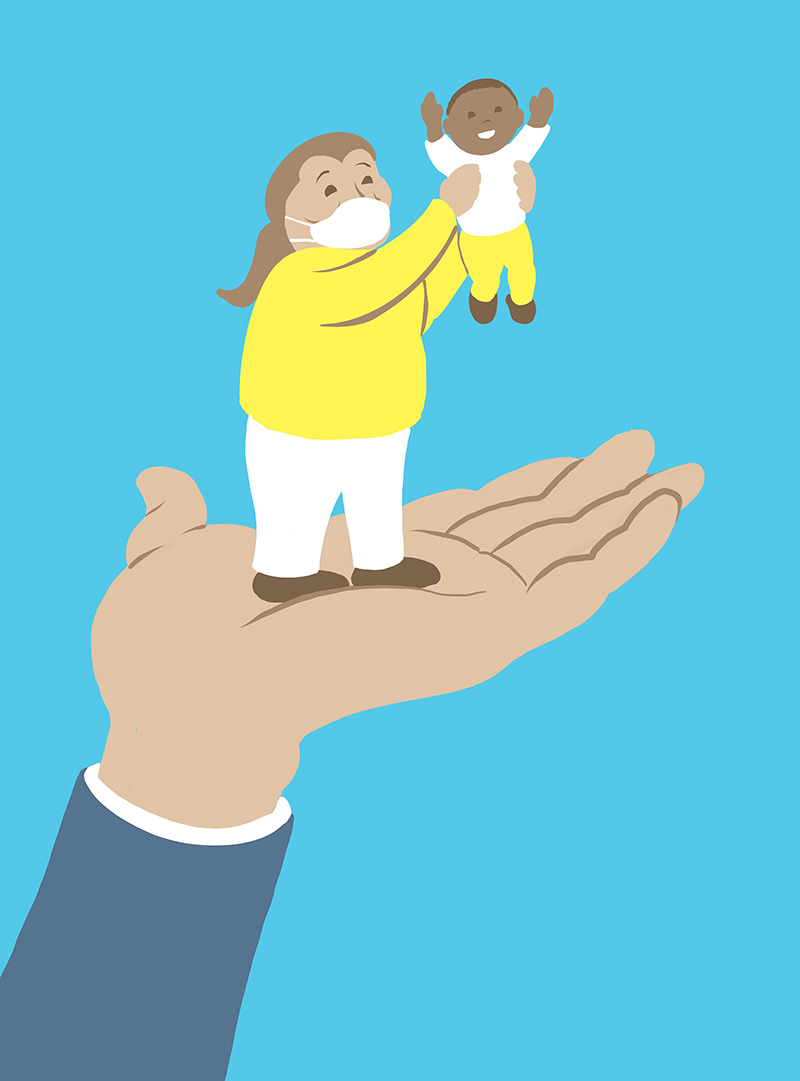 “Early childhood ‘hope maps’ are springing up all over the country! Hope is twofold—(1) the idea that something can be different, and (2) the pathways to get there. There is public-private consensus that we can have a more responsive and robust early childhood system by blending, braiding and bundling resources. State, community-based and business leaders are developing a menu of safe-to-fail options that are based on local priorities, resources and demographic trends.”
“Early childhood ‘hope maps’ are springing up all over the country! Hope is twofold—(1) the idea that something can be different, and (2) the pathways to get there. There is public-private consensus that we can have a more responsive and robust early childhood system by blending, braiding and bundling resources. State, community-based and business leaders are developing a menu of safe-to-fail options that are based on local priorities, resources and demographic trends.”
—Jackie Counts, Director, Center for Public Partnerships and Research, University of Kansas (read “Asking Big Questions in Kansas to Guide Decision-Making for Early-Learning Communities, Providers and Parents”)
“The extraordinary center-stage placement of early childhood in federal policy and national conversation gives me hope, because I’m watching it change from a near-constant bemoaning of inaction to the debate, discussion and—we hope—enactment of real policy change. We’ve not seen this happen yet, and I think a partial driver has been the pandemic. And it may be one of the handful of positive effects the pandemic will leave us with.”
—Dr. Dipesh Navsaria, Associate Professor of Pediatrics, University of Wisconsin–Madison; Medical Director, Reach Out and Read Wisconsin (read “Beyond the Book”)
“The possibility of the passage of the Build Back Better Act gives me hope that our nation is ready to fundamentally change its approach to supporting young children and families. The funding included in the act finally provides states the opportunity to invest in child care as a public good. I look forward to doing what we can at Bank Street to aid states in taking advantage of this unprecedented opportunity to support every child’s learning, starting at birth.”
—Emily Sharrock, Associate Vice President, Bank Street Education Center (read “A Golden Opportunity for Early Childhood Apprenticeships”)


